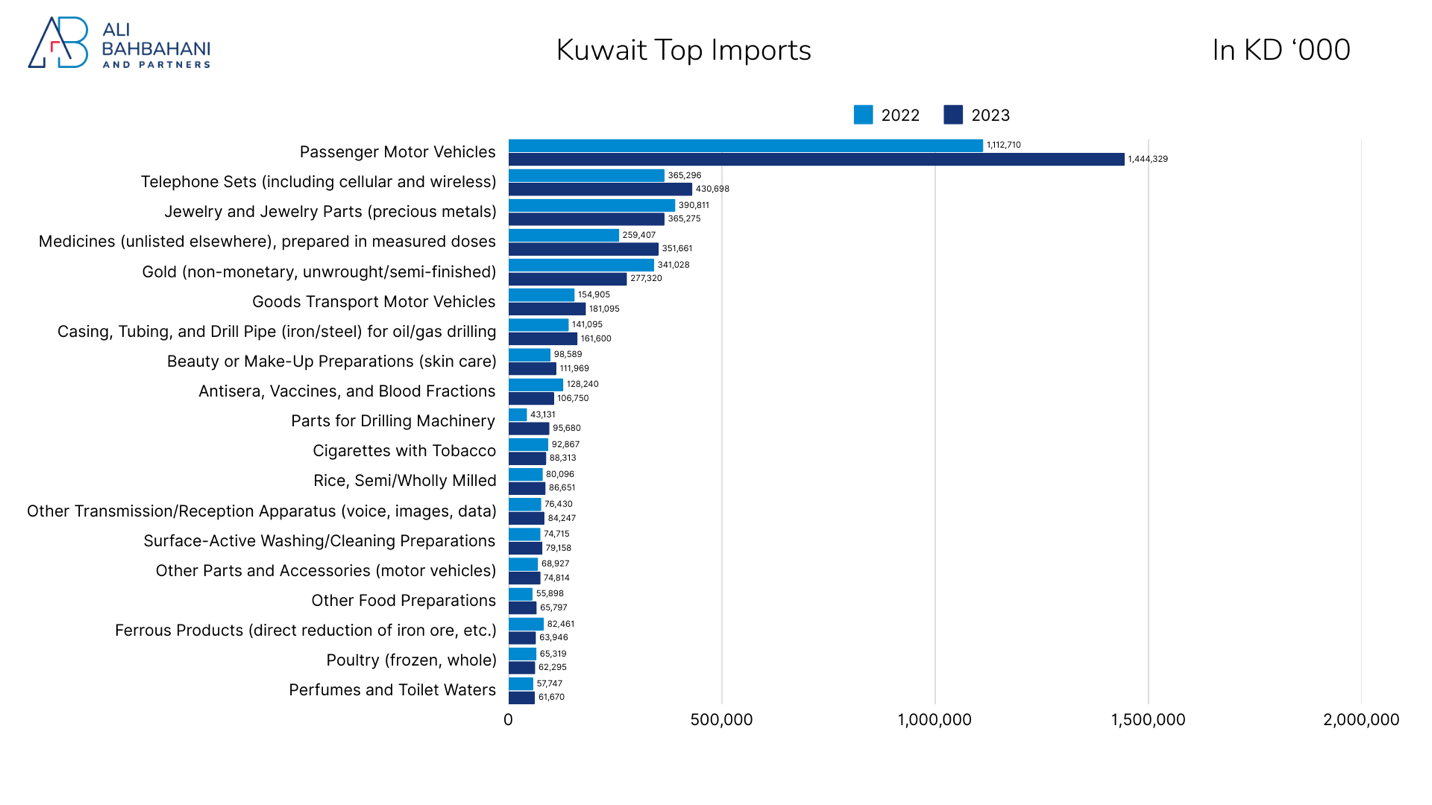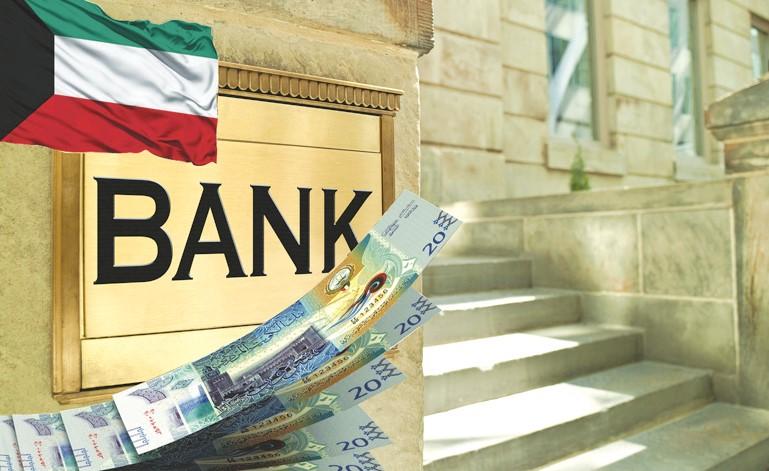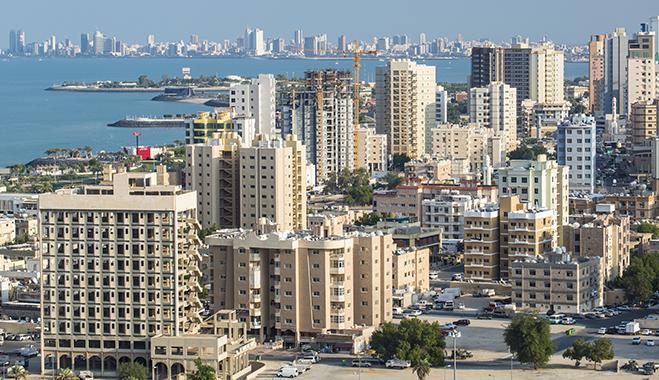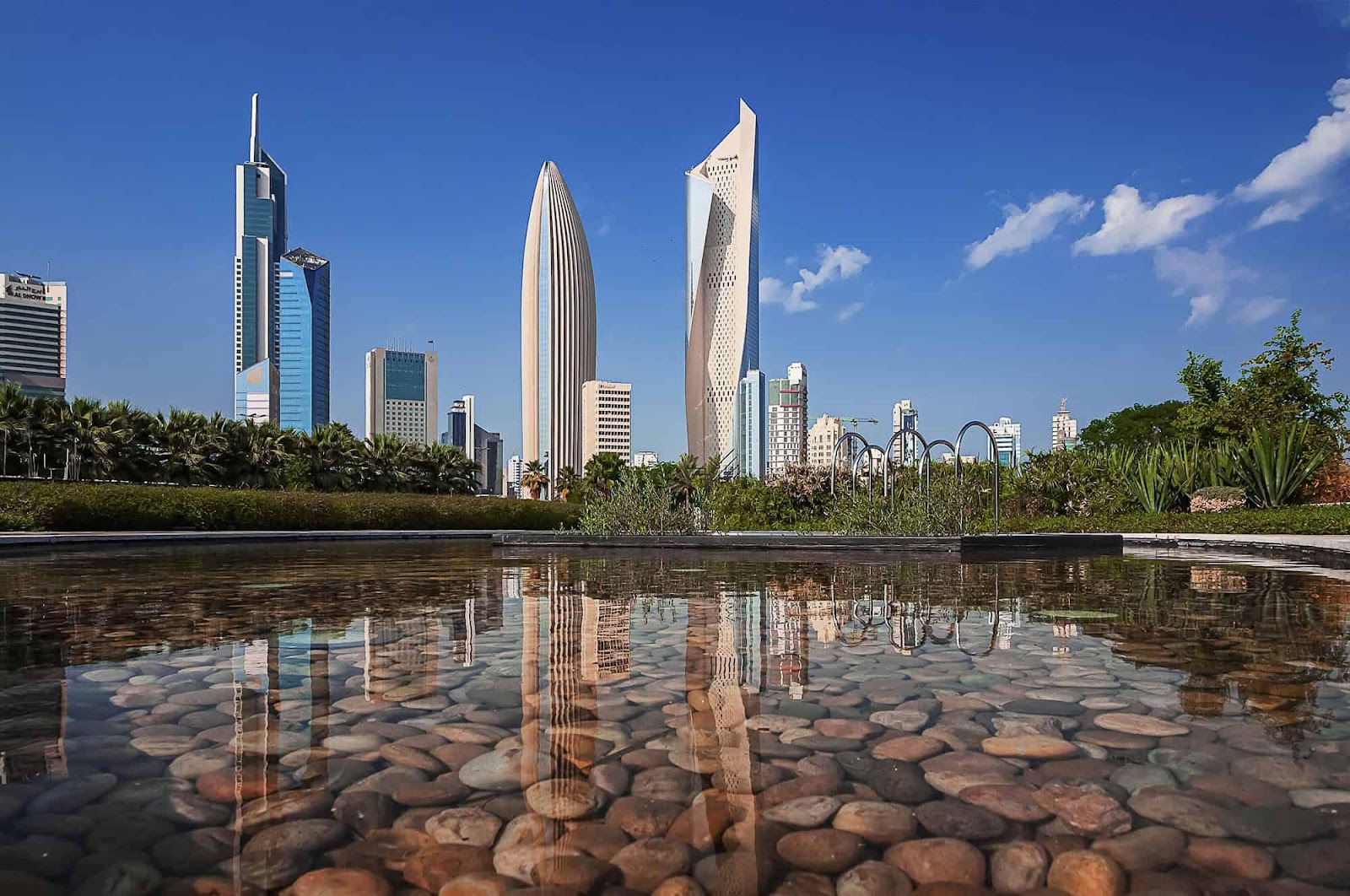The CEO’s Guide to Kuwait
.png)
Key Takeaways
- Strategic Economic Position and Wealth
Kuwait has the world’s sixth-largest oil reserves and is located at the head of the Persian Gulf. Thus, it is a major player in global trade and offers a wide range of business possibilities. - Economic Diversification Efforts
Through “Kuwait Vision 2035,” the nation is reducing its reliance on oil by investing in finance, technology, construction, healthcare, tourism, and entertainment. - Thriving Sectors
High-end jewelry, oil and gas, construction, automotive, banking, health and beauty, and food and beverage offer strong growth potential. - Young Population Advantage
With a median age of around 30, Kuwait’s young, tech-savvy population drives demand for innovative products and services. - Strategic Actions for CEOs
To succeed in Kuwait, focus on cultural awareness, strong local ties, regulatory compliance, developing local talent, and a long-term view.
A Personal Message for CEOs
In a fast-changing global economy, leaders must explore new growth markets. Kuwait stands out thanks to its substantial financial resources, forward-looking policies, and a population ready for fresh ideas. At Ali Bahbahani & Partners, we specialize in customer experiences, branding and marketing, concept creation, and business transformation. We’re here to guide you in this dynamic market.
This guide highlights Kuwait’s economic outlook, sector opportunities, challenges, and practical steps you can take to build a lasting presence in the region.
Introduction
Although geographically small, Kuwait wields significant influence as a top oil producer and a key trade bridge between East and West. In recent years, oil price swings have underscored the risks of depending too heavily on one resource. In response, the government launched Kuwait Vision 2035, an effort to develop Kuwait into a thriving financial and commercial hub. Investments in infrastructure, technology, healthcare, and beyond create a welcoming environment for businesses looking to expand.
From banking and automotive to luxury retail and hospitality, Kuwait’s diverse sectors offer many possibilities. Below, we discuss these sectors in detail, the challenges of entering this market, and how to succeed over the long term.

Kuwait’s Economic Landscape
Oil Wealth and the Need for Diversification
Oil revenues still account for up to 90% of government income, giving Kuwait one of the highest per capita incomes worldwide. Yet, leaders now push major reforms to grow sectors like finance, technology, logistics, healthcare, education, tourism, and entertainment.
Government Sector Influence
The public sector drives much of Kuwait’s economic activity:
- Government Tenders
Large contracts in construction, technology, and services can be profitable for private firms. - Employment Landscape
Many citizens work for the government, and private companies must meet “Kuwaitization” quotas, which require them to hire Kuwaiti nationals. - Infrastructure Projects
Steady investment in roads, healthcare, education, and leisure developments boosts demand for goods and services.
Sector Analysis

1. Banking Sector: Embracing Digital Innovation
Kuwait’s banks are strong and well-regulated. Total banking assets are around 110KD billion, with digital adoption at a record high:
- Opportunities
- Fintech Collaborations: Working with fintech firms can improve customer services.
- API-Driven Platforms: Secure integrations enable innovative digital offerings.
- Challenges
- Regulatory Compliance: Local laws can be complex.
- Cybersecurity: As digital services grow, safeguarding systems is essential.

2. Automotive Sector: A Leading Import Market
About 130,000 to 140,000 new vehicles are sold each year in Kuwait:
- Market Dynamics
- Luxury and SUVs: Low fuel prices make large vehicles popular.
- High Imports: Vehicle import value exceeded 1.2KD billion recently.
- Opportunities
- Electric Vehicles (EVs): Eco-friendly shifts are slowly gaining traction.
- Financing Options: New leasing models can appeal to different budgets.
- Challenges
- Market Competition: Many well-known global brands are already present.
- Oil Price Impact: Volatile oil prices can influence buying power.

3. Investment Landscape: Room to Grow
Kuwait’s capital markets are less developed than its banking sector, with limited IPOs:
- Current State
- Low Number of IPOs: Fewer public listings mean fewer investment choices.
- Underdeveloped Markets: Advanced products are still emerging.
- Opportunities
- Reforms: Plans to attract more foreign investors.
- Venture Capital: More interest in funding startups and SMEs.
- Challenges
- Investor Confidence: Strong governance is vital.
- Low Liquidity: Trading volumes can be modest, discouraging big investments.

4. Hospitality Sector: Untapped Potential
Kuwait lags behind its Gulf neighbors in leisure tourism, but there are unique openings:
- Market Characteristics
- Business Travel: Most visitors come for work.
- Weekend Escapes: Locals flock to coastal chalets, boosting weekend demand.
- Opportunities
- Niche Tourism: Medical, cultural, and eco-tourism can attract new audiences.
- Entertainment Options: Adding venues can draw more weekend visitors.
- Challenges
- Visa and Cultural Rules: Certain leisure activities are restricted.
- Regional Competition: Neighboring countries have more established tourism sectors.

5. High-End Jewelry Market: Sparkling Prospects
Kuwait is a major importer of gems and jewellery, driven by cultural and personal interests:
- Market Dynamics
- Cultural Importance: Gold and precious metals hold strong meaning.
- Growing Luxury Demand: Global brands gain popularity.
- Opportunities
- Retail Expansion: High-end boutiques and local partnerships.
- Customization: Tailor-made pieces for local tastes.
- Challenges
- High Competition: Numerous well-known brands compete for market share.
- Consumer Confidence: Luxury spending fluctuates with economic conditions.

6. Oil and Gas Sector: Backbone of the Economy
Despite plans to diversify, oil and gas remain central, with around 2.59 million barrels produced daily:
- Opportunities
- Enhanced Oil Recovery: Advanced tech to boost output.
- Downstream Growth: Investments in refineries and petrochemicals.
- Renewables: Solar and wind projects are on the horizon.
- Challenges
- Regulations: Must comply with strict legal and environmental rules.
- Price Volatility: Shifts in global prices affect planning and profitability.

7. Construction Sector: Building for the Future
Kuwait invests heavily in housing, roads, and public facilities:
- Market Dynamics
- Housing Demand: Young families need modern housing.
- Infrastructure Projects: The government plans over $100 billion in developments.
- Opportunities
- Public-Private Partnerships: Large-scale collaborations are growing.
- Green Building: Environment-friendly structures are increasingly popular.
- Challenges
- Approval Delays: Bureaucratic steps can slow down progress.
- Cost Controls: Fluctuating prices for materials and labor must be managed.

8. Health and Beauty: Rapid Growth
Kuwait’s health, fitness, and beauty market sees steady gains:
- Market Characteristics
- Cosmetics Sales: Approaching 120KD million in 2023.
- Wellness Trend: More gyms, health clinics, and spa services.
- Opportunities
- E-Commerce: Online beauty and wellness sales are climbing.
- Advanced Treatments: Cosmetic procedures draw local and foreign interest.
- Challenges
- Regulations: Product approvals and advertising rules can be strict.
- Competitive Field: Local and international players vie for consumer loyalty.

9. Food and Beverage (F&B): A Growing Appetite
The F&B sector benefits from high per capita spending on food, around 1,400KD yearly:
- Market Dynamics
- Strong Demand: Packaged foods alone are valued at about 1.3KD billion.
- Café Culture: Coffee shops flourish, often expanding regionally.
- Diverse Tastes: From fast food to gourmet, Kuwaiti consumers enjoy variety.
- Opportunities
- Franchise Models: Proven concepts can scale quickly.
- Health-Conscious Options: Organic, vegan, and “free-from” foods see rising interest.
- Challenges
- Crowded Market: Competitive branding and offerings are key.
- Regulations: Must meet health, safety, and halal rules.
Opportunities for Businesses
- Young and Dynamic Consumers
Over half the population is under 35, creating strong demand for new products, digital services, and modern brands. - High Purchasing Power
Kuwait’s per capita income is among the highest worldwide, supporting spending in luxury, automotive, and tech sectors. - Government Incentives
Agencies like KDIPA offer tax breaks, customs exemptions, and options for 100% foreign ownership in key sectors. - Strategic Location
Serving as a gateway to the MENA region, Kuwait can be a regional base for broader expansion. - Government Tenders
Large-scale public projects can become steady revenue streams and bolster a company’s reputation.

Challenges to Consider
- Complex Regulations
Paperwork can be lengthy, and laws differ from Western practices. - Workforce Nationalization
Hiring quotas for local citizens may require training programs to build specialized skills. - Cultural Factors
Building trust through face-to-face meetings and understanding local customs is key. - Market Competition
Sectors like automotive, banking, and jewelry already have well-established players. - Oil Price Impacts
Changes in oil prices can affect both government spending and consumer behavior. - Reliance on Government Jobs
A large share of citizens work in the public sector, influencing private-sector hiring and spending patterns.
Five Strategic Actions for CEOs
- Understand the Culture
- Invest in cultural awareness for your team.
- Take part in community events to build genuine connections.
- Form Local Partnerships
- Work with known Kuwaiti firms to gain market insight.
- Seek help from specialized consultants, such as Ali Bahbahani & Partners.
- Adapt to Regulations and the Economy
- Stay updated on local laws, and hire local legal experts if needed.
- Prepare strategies for fluctuating oil prices.
- Invest in Kuwaiti Talent
- Develop programs to train and grow local employees.
- Provide clear career paths to boost loyalty and retention.
- Focus on Long-Term Innovation
- Aim for sustainable growth over quick wins.
- Continuously offer new ideas and business models suited to local needs.
Conclusion
Kuwait offers substantial opportunities backed by a strong economy, youth-driven consumption, and strategic government policies. But success here requires cultural awareness, regulatory compliance, genuine partnerships, and a commitment to lasting growth. You can carve out a firm foothold in Kuwait’s evolving market by embracing these factors.
About Ali Bahbahani & Partners
We are a leading Kuwaiti consultancy specializing in:
Our deep understanding of Kuwait’s market allows us to guide you from strategy to execution, building partnerships, refining operations, and ensuring a smooth path for your business in this vibrant country.
Ready to Explore Kuwait’s Full Potential?
Contact Ali Bahbahani & Partners today. Let’s work together to transform challenges into long-lasting success in Kuwait’s thriving economy.

.webp)
.png)
